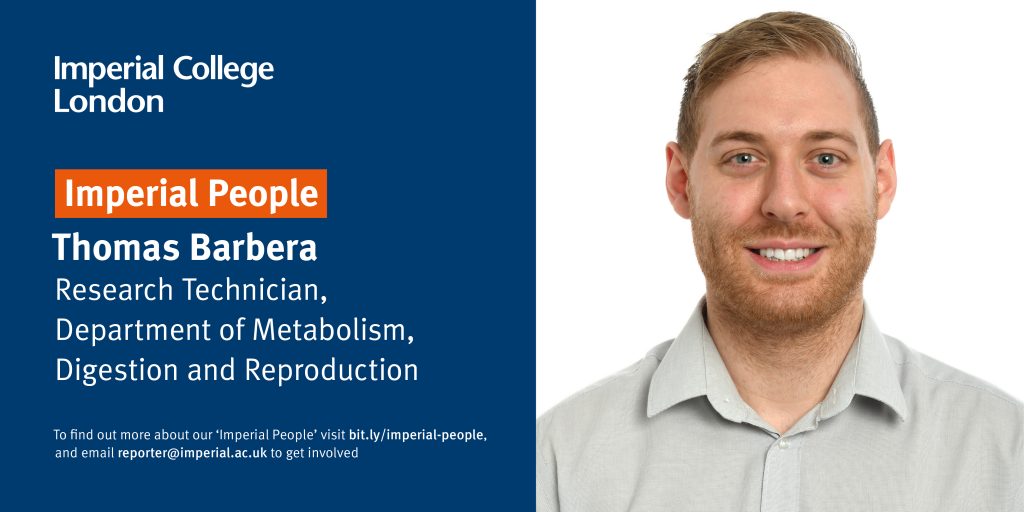
“As the lockdown began, I ensured that the multitude of samples in our department were safe, meaning our liquid nitrogen tanks were filled and our -80 freezers were monitored.”
I studied Biomedical Science at the University of Manchester and after graduating, I worked as a Laboratory Technician before joining Imperial. In my current role as a Research Technician, my main duties include aiding clinical trials alongside biobanking. Biobanking involves approaching outpatients attending clinics to manage their liver-based diseases, and asking them to donate extra samples to our biobank sample repository. These will then be used in research to investigate liver disease, pending approval from the Biobank Governance Committee. As well as working at Imperial, I am also completing my master’s in clinical research.
COVID-19 has impacted both my job and studies. Most ongoing clinical trials in our department were put on a hiatus to prevent unnecessary risk to participants. Also, with most outpatient appointments now over the phone, biobanking was paused. With labs in lockdown, I am also unable to continue with my MRes research project. As the peak of the pandemic has (hopefully) passed, trials are now beginning to resume and hopefully in time lab work will return to normal.
As the lockdown began, I ensured that the multitude of samples in our department were safe, meaning our liquid nitrogen tanks were filled and our -80 freezers were monitored. I was able to step up and organise the emergency plans and essential duties of our department and was invited to participate in the weekly senior lab management meetings.
I also supported during this time by locating and donating as much PPE as we could spare. The research nurses and clinicians in my department were key players in the early COVID-19 trials. I assisted where I could, mainly helping to organise the safe transport of samples to our department and storing them appropriately to allow future work to be carried out.
Many of my colleagues bravely joined the front line, having the clinical experience that was desperately needed. I work hard and do what I can to help, trying to follow their example.